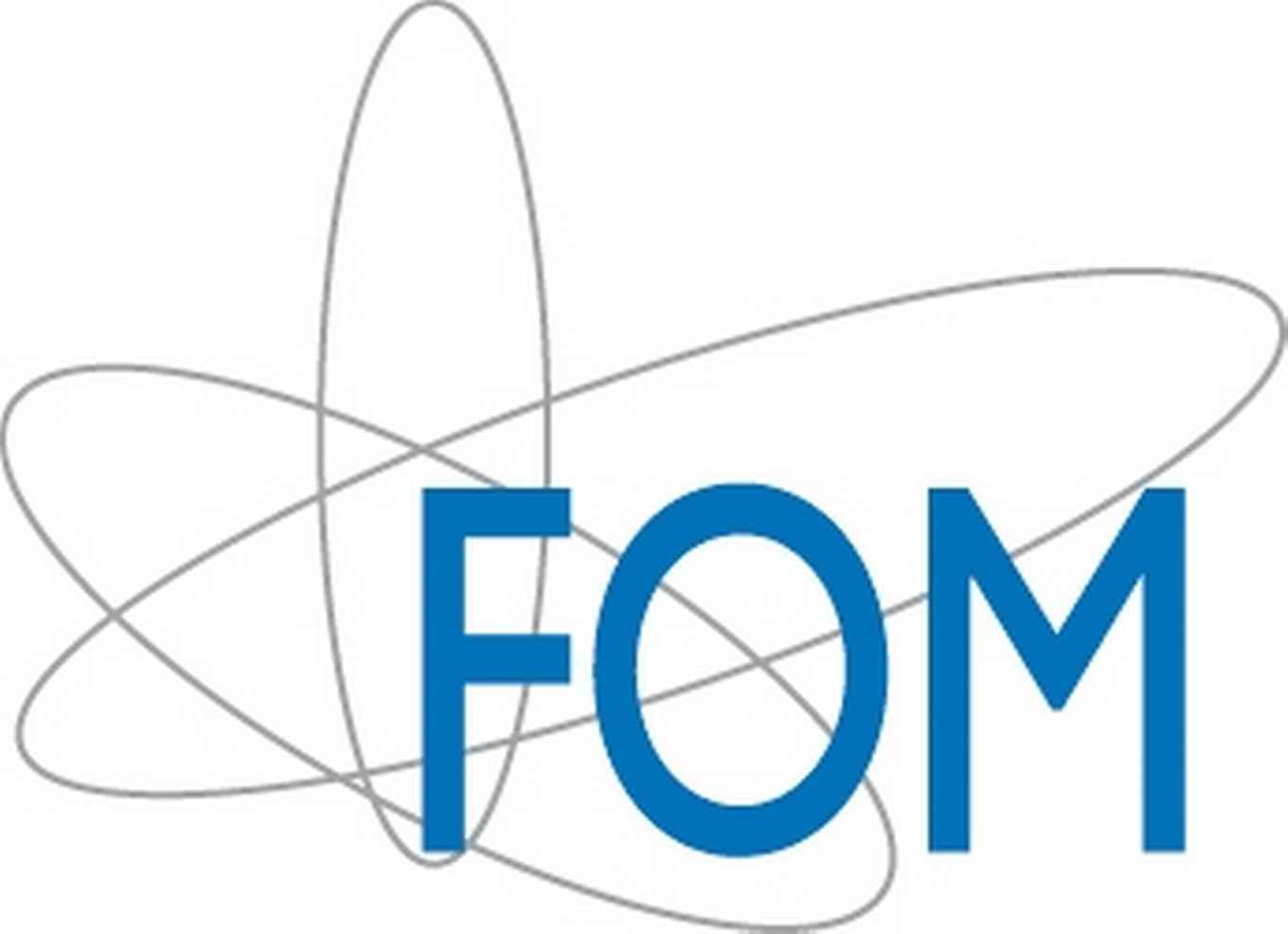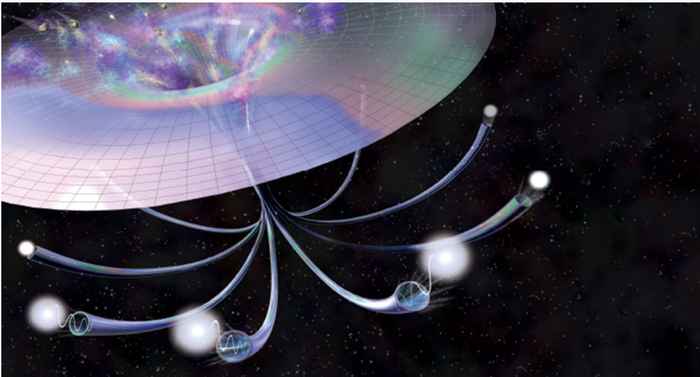Two new FOM Vrije Programma's in Theoretical Physics
27 November 2016

Strange metals
Strange metals are called strange because their behaviour deviates from the standard properties of metals. Their electrical resistance increases linearly with temperature until the melting point. Together with colleagues from Leiden University, Utrecht University and the University of Amsterdam, principal investigator Prof. Nigel Hussey (Radboud University) wants to investigate whether strange metals provide opportunities for quantum entanglement over longer distances based on holographic principles. The programme connects leading researchers in the area of string theory and quantum many-body theory, with experimental solid-state physicists to explore in depth the fundamental physics of strange metals.
![Figure 1: The Fermi surface of a strange metal projected onto the funnel in space-time associated with an event horizon near a black hole. This figure encapsulates the holographic correspondence linking theories of interacting electron systems at finite density with those of quantum gravity in a higher dimension [1].](/binaries/_ht_1702779576285/700x0-jpg/content/gallery/projectsites/d-itp/fermi-surface-of-strange-metal-black-hole.png)
Principal investigator Prof. Nigel Hussey (Radboud University): ‘We are pleased with this award: this programme is the first one in the world that combines experiment and theory to ascertain the origin of the behaviour of strange metals, related to high-temperature superconductivity. We are inspired by theories that were originally developed for quantum gravitation, and the timing of this new programme gives us an advantage over the global competition in this discipline - something that we expect to benefit from during the next five years.’
Co-investigators:
Prof. Mark S. Golden, dr Erik van Heumen, Van der Waals-Zeeman Institute, IoP, University of Amsterdam
Prof. Jan Zaanen, prof. Koenraad Schalm, Instituut-Lorentz for Theoretical Physics, University of Leiden
Prof. Henk Stoof, prof. Stefan Vandoren, Institute for Theoretical Physics, Center for Extreme Matter and Emergent Phenomena, Utrecht University
Dr Milan Allan, Huygens-Kamerlingh Onnes Laboratory, University of Leiden
Exploring new horizons
Space-time, black holes and quantum information
New and unexpected parallels have been discovered between gravity and quantum information theory, which mean that space-time and gravity are not independent entities but emerge from the joint behaviour of certain quantum degrees of freedom. In this programme professor Eric Bergshoeff (University of Groningen), together with colleagues from the University of Amsterdam, Leiden University and Utrecht University, wants to discover the general principles and mathematical laws underlying quantum gravitation and what the consequences of these are for the physics of black holes and cosmology. The consortium will focus on string theory, but also use new concepts from both quantum information theory and solid-state physics.

Programme leader Eric Bergshoeff looks ahead: ‘Quantum information theory gives a new boost to the fascinating research into quantum gravitation. The resultant gravitation that emerges from this permanently changes our view of space, time and forces, and this could have far-reaching consequences for our understanding of black holes and cosmology.’
Co-investigators:
Prof. Jan de Boer, prof. Erik Verlinde, dr Alejandra Castro, dr Miranda Cheng, dr Ben Freivogel, dr Diego Hofman, Institute for Theoretical Physics ITFA, IoP, University of Amsterdam
Prof. Stefan Vandoren, dr Umut Gursoy, Institute for Theoretical Physics, Center for Extreme Matter and Emergent Phenomena, Utrecht University
Prof. Jan Zaanen, prof Koenraad Schalm, Instituut-Lorentz for Theoretical Physics, University of Leiden
Prof. Kyriakos Papadodimas, Rijksuniversiteit Groningen

About FOM ‘Vrije Programma's’
In a Vrij FOM-programma the specialists from various Dutch knowledge institutes consolidate their strengths in specific areas. The research groups work in areas that Dutch physics excels in at an international level and for which there is a clear scientific and societal interest. The new research programmes must lead to a real understanding of recently discovered phenomena and in some cases also provide perspectives for new technologies. With the Vrije FOM-programma's FOM is trying to achieve two objectives: physics research of the highest possible quality in the Netherlands plus a focus on scientific subjects and the consolidation of research activities. Through the Vrije FOM-programma's FOM also realises strategic research policy via its subareas.